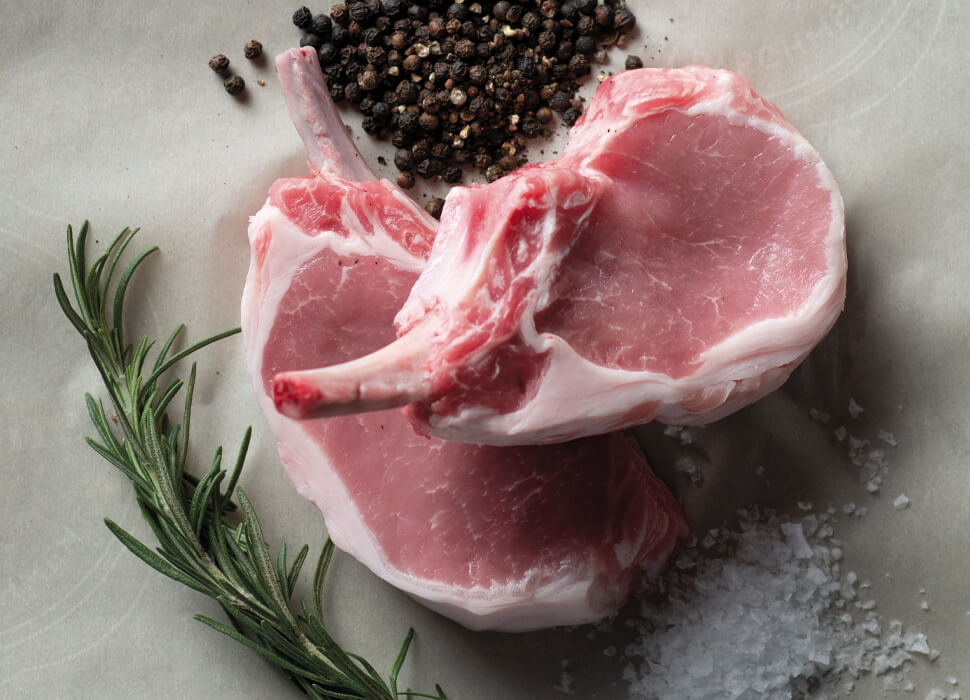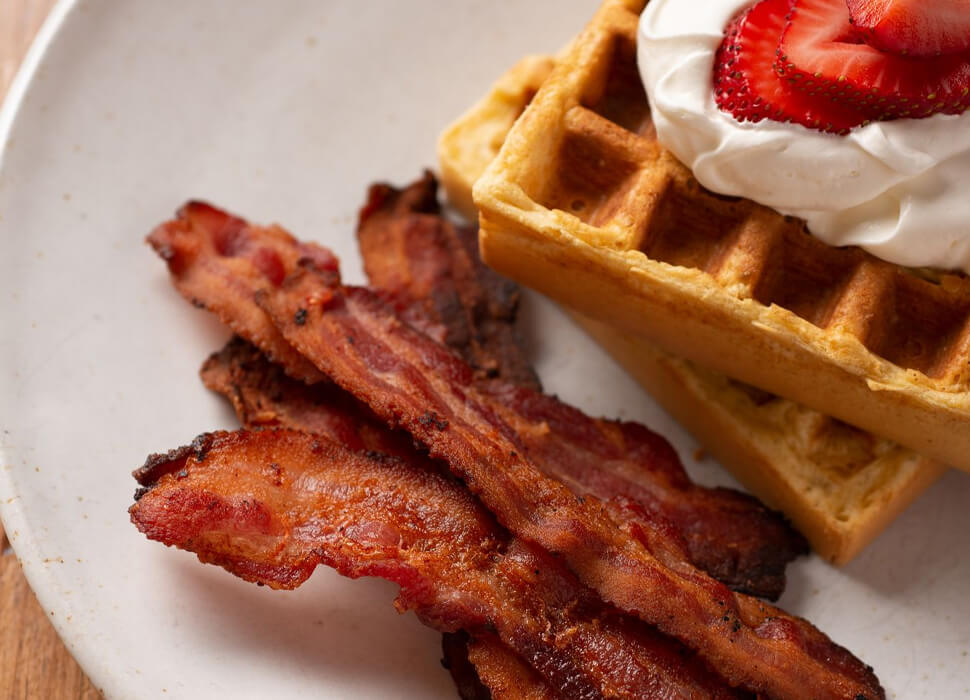When you’re browsing through hot dogs and bacon at the grocery store, you’re likely to come upon all sorts of labels. There’s organic, non-GMO, healthy, sugar-free, natural, and more! While you may be tempted to assume these words all mean the same thing, do you really know what these labels mean?
We’re going to dive into what “natural” truly means on meat labels and the historical significance it holds for the Coleman Natural brand.
What Does “Natural” Really Mean on a Label?
While the natural label has evolved over time, it’s currently regulated and monitored by the United States Department of Agriculture. According to the USDA, the word natural on a label can be used for meat products only if two conditions are met: the product contains no “artificial flavor or flavoring, coloring ingredient, or chemical preservative, or any other artificial or synthetic ingredient” and it is “not more than minimally processed.”
That drives the question of what does “minimally processed” mean? According to the USDA, minimal processing “does not fundamentally alter the product.”
To understand the use of natural on a meat label, let’s look at one of America’s favorite products, the hot dog. While many hot dog producers rely on added synthetic nitrates or nitrates to cure their hot dogs, these ingredients prohibit a product from being labeled as natural per the definition above. However, if producers opt to use cultured celery powder and sea salt that have naturally occuring nitrates and nitrites to preserve the meat, they may be able to label their hot dogs as natural.
It’s important to note that the natural label doesn’t tell you anything about how the animal from which the meat was sourced was raised, the type of diet it was fed or how much space it was provided.
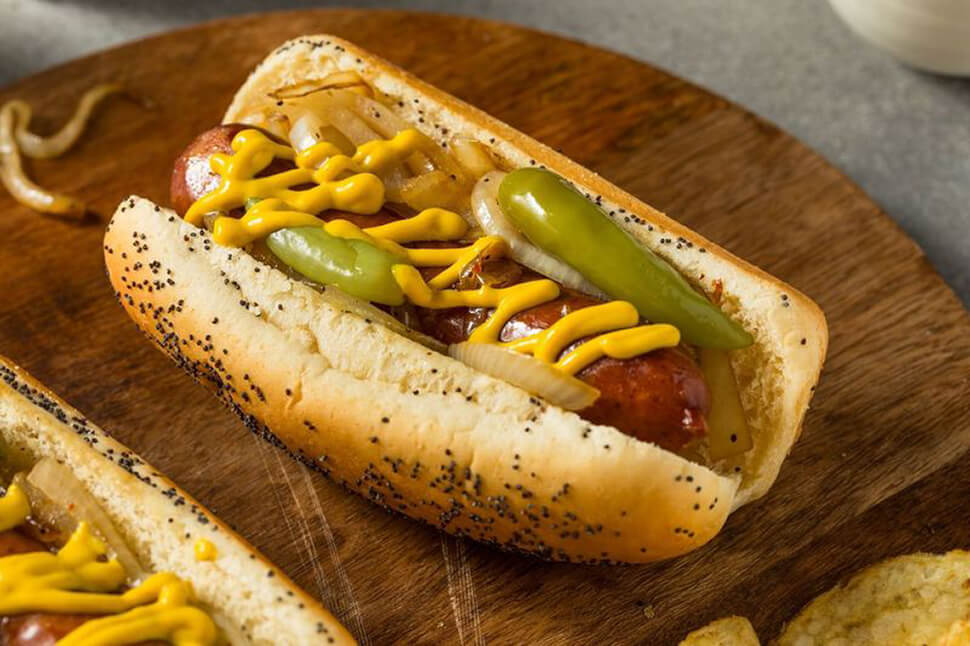
The History of the Natural Meat Label & The Coleman Family
While the current USDA definition of natural doesn’t indicate how an animal was raised, the definition and label didn’t start out that way. Defining what natural means on a meat label was a practice pioneered by the Coleman family.
In the late 1970s when cattle markets were not favorable to ranchers, Mel Coleman Sr. realized the family needed to find an alternative to selling their ranch’s cattle into the commodity market. After learning that there was a demand for meat from animals raised without antibiotics and added growth hormones and that those consumers regularly shopped at the local natural food stores, Mel decided it would be apropos to brand his beef as natural.
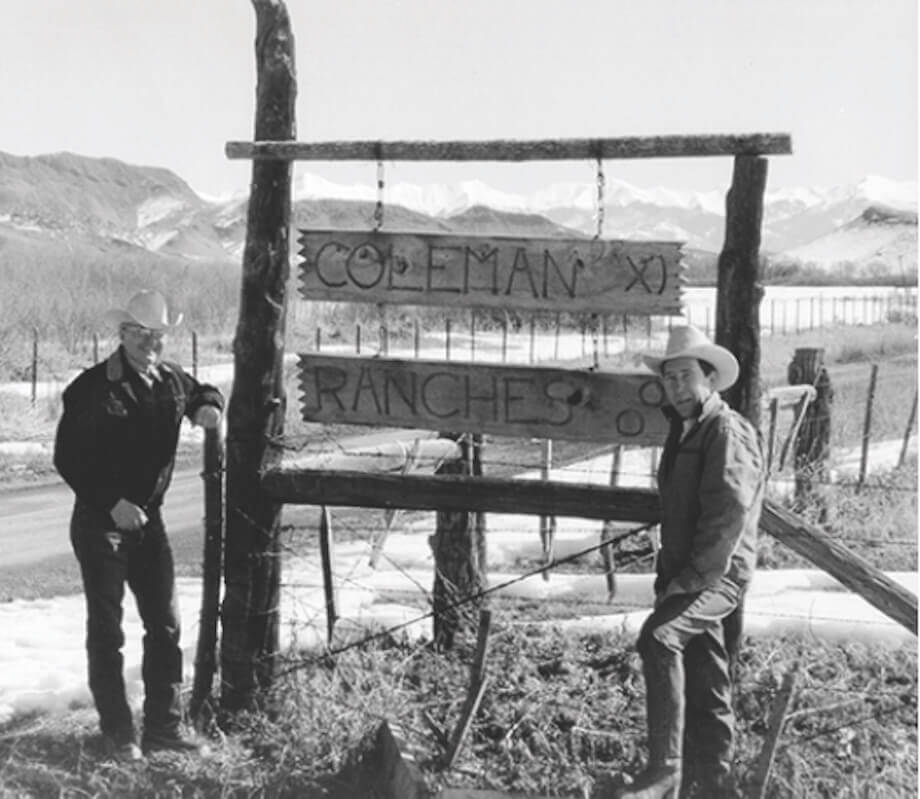
He soon learned that making special product claims had to first go through the arduous USDA submission process of detailing production standards, practices and protocols regarding how livestock are raised. Finally, after months of Coleman working alongside government regulators, the USDA defined natural as how livestock was raised: from birth without the use of antibiotics or added growth hormones, and fed an all vegetarian diet.
Sadly, within a year the USDA changed the natural definition to allow products to be labeled natural if the meat is minimally processed and contains no artificial ingredients. Obviously, this definition, which remains today, has nothing to do with how the animal was raised or handled.
To Coleman, Natural Isn’t Just a Label, It’s a Way of Life
Even when the USDA changed the definition of natural, the Coleman family continued to raise animals humanely, with no antibiotics, added hormones and on an all vegetarian diet.
Over time, the Coleman family connected with thousands of other like-minded farmers and ranchers who believed in raising animals under the Coleman Natural protocols. To them, natural is more than just a label.
“Natural to us is based on what we believe. We didn’t get into the business based on some market data that said ‘you should do this because you’ll make a lot of money.’”
Mel Coleman, Jr.
Small family farmers and ranchers care about being good stewards of land and water resources, humane animal care and their role in providing consumers with meats they can trust and enjoy.
Today, Coleman Natural farmers continue to farm in a way that shows respect to the land, water, and animals. Not only do these farmers avoid using unnecessary antibiotics and added hormones, but they also provide their animals with extra space and the ability to express their natural behaviors. These practices are backed up by crate-free and American Human Certified labels.
Natural Practices Not Only Benefit Consumers, They Also Help Farmers
When farmers and ranchers sell into the commodity market, they must accept the market price, no matter what production methods they use. However, this price doesn’t always lead to economic viability. As Mel Coleman, Sr. experienced firsthand, the commodity market prices for livestock are all too often below production costs nor do they reward producers for adopting natural raising practices.
Raising animals for food the “way nature intended” isn’t the easy way. For this reason, Coleman Natural makes sure it compensates its producers fairly and consistently for their efforts.
“One of the tenets that’s important to us is the economic viability of small farms and ranches. If farms and ranches are economically sound, they are likely to invest in better, more sustainable natural resource and livestock management practices,” says Coleman, Jr.
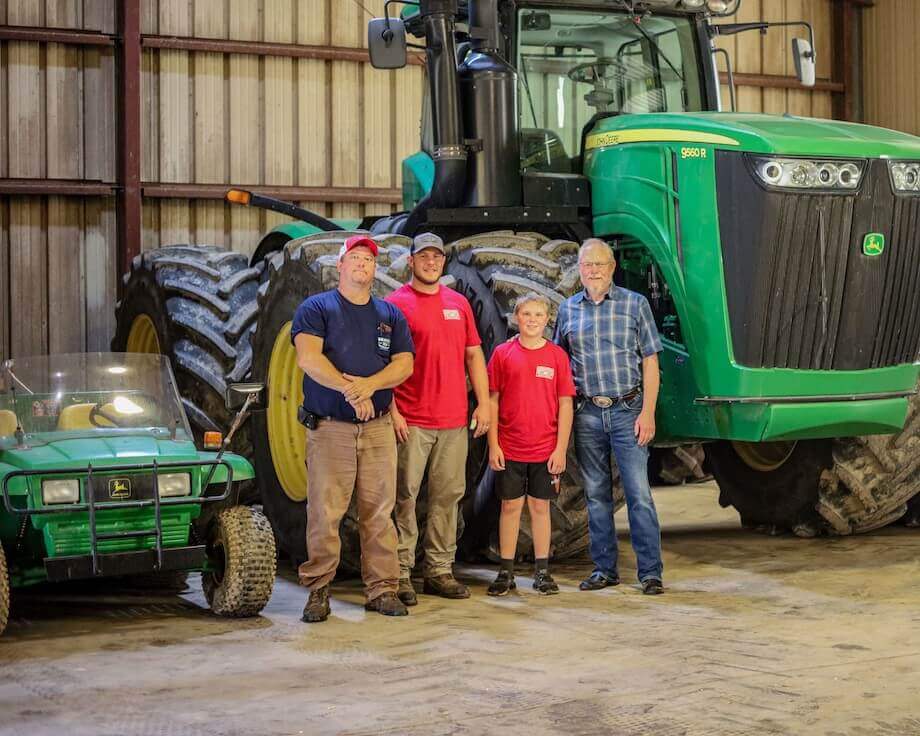
Buy Natural Meat Products at a Great Value
With Coleman Natural, not only does your purchase represent a great value, but it directly supports America’s small family farms and ranches and their ability to provide clean, nutritious and great tasting meat products.
“The purchase of a Coleman Natural product is probably one of the best values in the meat department. While it may cost more, it’s one of the best values because of what it supports in the long run – the environment, sustainability, regenerative resource management, better care and handling of livestock and the preservation of multi-generational family farming and ranching,” Coleman Jr. says.
So next time you’re walking down the meat aisle, look for the Coleman Natural label. By purchasing an uncured boneless ham or a package of our award-winning bacon, you’ll not only know where it came from but you’ll be supporting a world that’s better for you, America’s farmers, and your family.
To learn about how you can enjoy Coleman Natural products at home, check out these articles:
